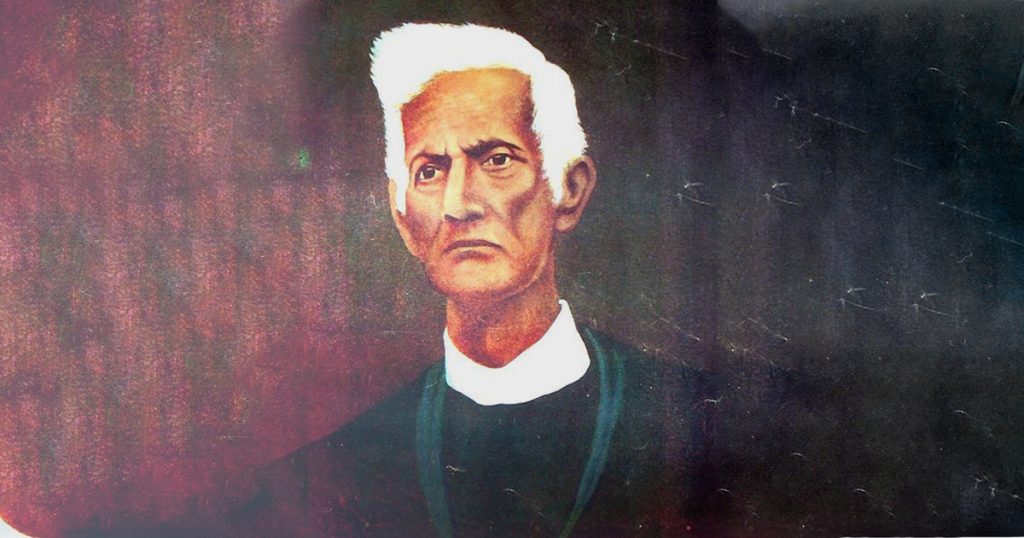Rup Narayan Das
Fakir Mohan Senapati whose birth anniversary falls today is remembered for his seminal contribution to Odia language and literature. Born in 1843 in Baleswar (Balasore) in colonial India, he grew up in the milieu of social inequity and injustice which found resonance in his writings. His foremost contribution, however, was the protection and preservation of Odia language against all odds.
In a portion of his Atma Jivana Charita, which is ably translated into English by John Boulton, who was a professor at the School of Oriental and African Studies, London, as My Times and I, Senapati wrote that the complete disappearance of traditional Odia primary schools from South Midnapur adjoining Baleswar was intriguing and was a sorry tale. Sometime between 1865 and 1870, a Bengali sub-inspector of schools was appointed to set up government schools there. He tried to found Bengali medium schools there, but people refused to have their children taught in Bengali. It was against these historical circumstances that the movement to protect Odia language was stared subsequently in which Fakir Mohan Senapati played a pioneering role.
His Atma Jivana Charita is more than a vignette of his life. It critically reflects the socio-economic and political history of his time. In his autobiography, he also wrote that during his boyhood shipbuilding was a thriving industry in Baleswar. There were between five to six hundreds ships under commission. Three-quarters of them were salt-carriers and the rest transported commercial goods to Madras, Colombo and islands in the Bay of Bengal. In those days in Baleswar steamers were unheard of; seafaring ships were then sail-driven. For the inhabitants of Baleswar town, salt manufacturing was the sole source of livelihood. As a port and business centre, Baleswar had achieved fame in both India and Europe. He further observed in his autobiography that European merchants from Holland, Denmark, France and Britain had established trading posts there before moving to Bengal.
The hallmark of Senapati’s literary contribution is social realism. His literary works mirrored social oppression, subjugation and pathos vividly and intensely. Senapati in his novel Chhaman Athaguntha published in 1898 for the first time articulated the urges and aspirations of the common masses for redemption from the tentacles of feudal landlords and usurious money lenders. It augurs well that four eminent litterateurs- Rabi Shankar Mishra, Satya P. Mohanty, Jatindra K. Nayak and Paul St-Pierre – have translated Senapati’s celebrated novel Chhaman Athaguntha into English which is published by Penguin. Critiques have lauded Chhaman Athaguntha as the “culmination of the tradition of realism” in modern Indian literature. His other novels include Lachhama, Prayaschita and Mamu. Arguably, Senapati can be regarded as the father of Odia short stories; most important being Revati which captures the pangs of transition and pathos of womanhood. Randipua Ananta is yet another remarkable short story of Senapati.
The greatest tribute to Senapati will be to promote Odia language at a time when it is facing threat due to urbanisation and modernisation when parents of expatriate Odias and even those living in Odisha do not encourage their children to learn the mother tongue. Secondly, his literary works need to be translated to other regional languages so as to reach wider readership across the country. The Central Sahitya Akademy and the Odisha government together should take steps to translate Senapati’s literary works into other regional languages. Getting able and qualified translators to translate Senapati’s writings is quite a challenge, because there is risk of losing the pristine purity, lucidity and flavour of the original text. What the Odisha government or for that matter Sahitya Akademy can do is to consider engaging Odia IAS officers posted in other states, who are trained in the respective languages having taste and temperament for literature, to translate such works into regional languages.
The writer, a retired joint secretary of Lok Sabha Secretariat, is currently a senior fellow of the Indian Council of Social Science Research at Indian Institute of Public Administration, New Delhi. Views are personal.
